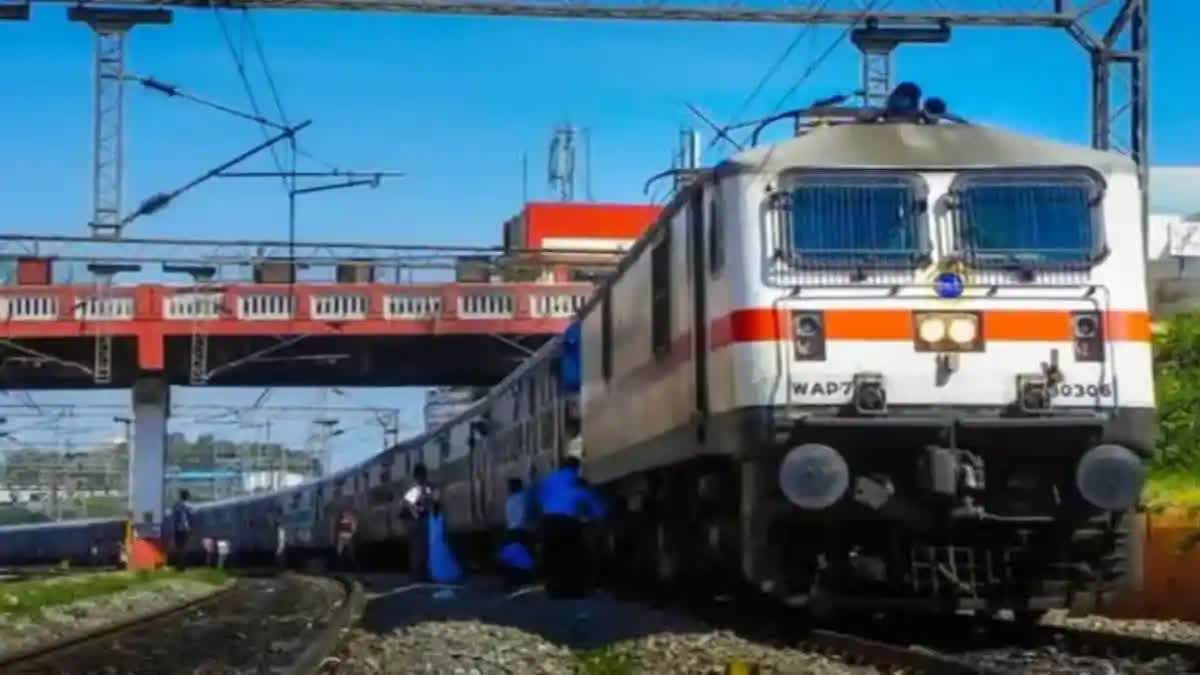New Delhi: Nepal’s inability to train staff to run its rail operations is leading to a further extension of a contract with Konkan Railways Corporation Ltd (KRCL) of India for a cross-border passenger train service.
According to a report in the Kathmandu Post, the current contract with the KRCL to run the Jayanagar-Kurtha passenger rail service will get an extension. In case the contract is not extended, the only cross-border rail service between India and Nepal is likely to come to a halt. The KRCL currently provides 28 rail technicians, including engine drivers, to run the service.
Nepal’s inability to train its own nationals in running train services is making the Himalayan nation solely dependent on the Indian company. "We have failed to send people to India for training, so this time, we have no option besides giving a one-year term extension to the KRCL,” the Post report quoted Niranjan Jha, general manager of Nepal Railway, as saying. “Although the final decision is yet to be made, this is how we are thinking.”
The Nepal government formed the Nepal Railway Company Limited (NRCL) which was given the onus of operations and maintenance of train services and railway system in Jaynagar- Kurtha section. The NRCL awarded the contract for starting train operations in Jayanagar-Kurtha to KRCL.
The Jayanagar-Kurtha railway is a cross-border railway line that connects Bihar’s Jayanagar with Nepal’s Janakpur city. It is part of the Jayanagar-Bijalpura-Bardibas rail link, which is one of five cross-border links planned between Nepal and India.
The Jayanagar-Kurtha line was inaugurated by Prime Minister Narendra Modi and his ten Nepali counterpart Sher Bahadur Deuba in April 2022. The line is 35 km long, with three km in Bihar and the rest in Nepal. The railway has eight stations and halts, including the historically important city of Janakpur.
The Jayanagar-Bijalpura-Bardibas rail link is being constructed with the assistance of the Indian government. Work on the second section of the line, from Kurtha to Bijalpura, is currently underway. The third section, from Bijalpura to Bardibas, is currently under discussion for land acquisition.
According to Jha, NRCL failed to hire the necessary staffers, which is the main reason behind this delay. “We also couldn’t prepare the curriculum required for the recruitment exams to staff the rail service,” he told the Post. “Now, the Public Service Commission has agreed to hire 224 persons for various vacant positions by the end of December.”
The NRCL has hired 115 Nepali staff including gate men, point men, and sweepers, while the technical side is handled by Indians. The KRCL’s involvement in operating rail transport in Nepal represents a significant development for both India and Nepal, with broad implications for economic integration, trade connectivity, infrastructure development, and regional cooperation in South Asia. This cross-border railway service has strategic value as it enhances connectivity between the two nations, fostering mutual economic growth, and providing Nepal with much-needed access to reliable, efficient, and cost-effective transportation options.
India has invested in developing Nepal’s rail infrastructure to integrate it with the Indian rail network, and Konkan Railway’s involvement is a step towards operationalising these railways.
As a landlocked country, Nepal’s economy relies heavily on access to foreign seaports for trade. India’s rail network offers Nepal improved access to Indian ports, including Haldia and Visakhapatnam, through the Indian rail network. This access reduces Nepal’s dependency on roadways and facilitates smoother export and import processes, ultimately enhancing Nepal’s connectivity to global markets.
The operation of rail services by KRCL reinforces India’s role as Nepal’s closest partner, counterbalancing other regional influences. Enhanced connectivity reduces Nepal’s dependency on third countries for trade and economic needs, which is strategically valuable given Nepal’s central location in South Asia and its potential as a gateway between India and China.
Reliable transportation infrastructure is essential for regional stability and security, as it enhances economic interdependence. The KRCL-led initiatives align with India’s broader Neighbourhood First Policy, which aims to foster stable, cooperative relations with neighboring countries. This rail connectivity not only benefits India and Nepal but also contributes to South Asia’s overall stability and connectivity.
It is in this context that the necessity for Nepal to have its own trained staff to run rail services assumes importance.
